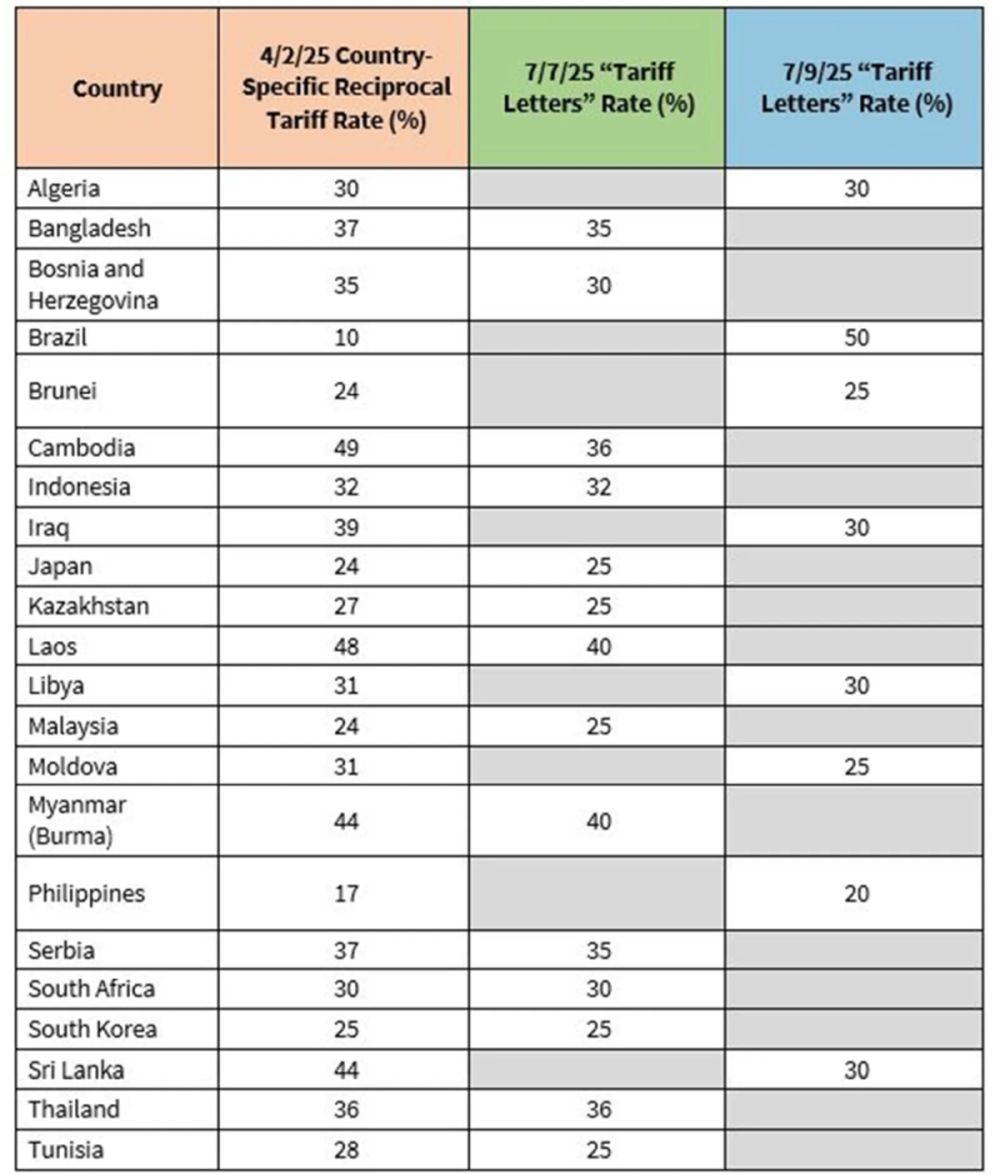- with Senior Company Executives, HR and Finance and Tax Executives
- with readers working within the Metals & Mining industries
On Wednesday, July 9, President Trump issued letters to eight additional trade partners notifying them of their country-specific reciprocal tariff rates that will go into effect on August 1. An updated reciprocal tariff chart is provided below. These letters include the same references to matching any increases to the other country's tariff rates on U.S. goods; to higher tariff rates applying to transshipped goods; and to these tariffs being "separate from all Sectoral Tariffs." Notably, the country-specific tariff rates announced this week for Brazil, Brunei, Japan, Malaysia, and the Philippines are higher than those originally announced on April 2.
Also notable with respect to President Trump's letter to the President of Brazil is its distinct tone. In the letter, President Trump states that the United States must "move away" from its "very unfair" trade relationship with Brazil. In particular, he criticizes Brazil's "attacks on Free Elections" and the "Free Speech Rights of Americans," including "Censorship Orders to U.S. Social Media platforms." Due to such digital trade and other non-tariff policies, along with tariff barriers, President Trump also directs U.S. Trade Representative Greer to immediately initiate a Section 301 investigation of Brazil.
This will be the first Section 301 investigation of the current Administration. Section 301 of the Trade Act of 1974 authorizes USTR to investigate and take action with respect to acts, policies, or practices of foreign countries that are unreasonable or discriminatory and burden or restrict U.S. commerce. During his first Administration, President Trump directed USTR to investigate certain unfair trade conduct by China (theft of intellectual property right, for which tariffs remain in place), Vietnam (timber and currency policies), and 11 other trading partners (digital services taxes).

The content of this article is intended to provide a general guide to the subject matter. Specialist advice should be sought about your specific circumstances.





